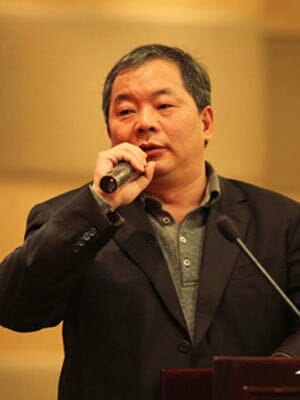
Greentown Chairman Song Weiping was not singing a happy tune at his latest news conference
The chairman of a Hangzhou-based real estate developer blamed “stupid officials” for the hard times that have forced him to sell out his controlling stake in Greentown China to Sunac Holdings, in a transaction valued at HK$6.3 billion (US$813 million).
Song Weiping, who became a billionaire through Greentown’s ability to acquire low-priced land from local governments and turn it into high-priced housing for sale to China’s cashed-up consumers was quick to turn on his former allies at a press conference announcing the sale of a combined 24.313 percent stake in his Hong Kong-listed company to its sometimes partner Sunac.
The share sale represents the combined holdings of Song, his wife Xia Yibo and CEO Shou Bainian. After the transaction, Sunac’s share of Greentown will be equal to that held by Hong Kong’s Wharf, which previously bought up stakes in the Hangzhou-based developer when it nearly went bankrupt in 2012.
The often-outspoken developer blamed government policies aimed at taming China’s runaway housing prices for bringing Greentown’s good times to an end.
“The austerity measures have largely disrupted the property market and have made it increasingly difficult for most developers to do business,” Song was quoted as saying in the South China Morning Post. “To me, it’s not a real property market at all.”
The real estate tycoon apparently did not address the earlier impact of China’s once-expansive monetary policies on helping him grow Greentown into a Hong Kong-listed firm.
Bear Market Forcing Out Weaker Players
In comments at a real estate conference during April, Ronnie Chan, chairman of Hong Kong’s Hang Lung Properties predicted that 2014 would be a year “that will separate the men from the boys” in China’s real estate market. The sale of Greentown to financially stronger Sunac seems to bear out that prophesy.
While Greentown’s offshore listing has given it access to equity and credit markets that many of its smaller peers in China lack, the company has the misfortune of having invested heavily in some of China’s most roller coaster-esque markets.
While the company’s base in Hangzhou has given it ready access to some of China’s wealthiest and most aggressive individual investors, Greentown’s focus on Hanghzou, Wenzhou, Ningbo and Taizhou now looks like a kamikaze mission as these markets become the epicentre of the current housing slowdown.
He Thinks Other People are Stupid
Although Song was quick to blame the government for his misfortune, “I think many of the officials are stupid,” he told the SCMP, his company’s decision to specialise in high end properties in Zhejiang looks unwise in hindsight. Disregarding this reality, the tycoon put the blame on the government again by saying, “The unreasonable policy directions and decisions really made me angry and disappointed.”
Now that there are predictions that the government will relax a range of housing restrictions for second and third tier cities, such as those in Zhejiang, it will be interesting to see if the area recovers, or if there are deeper structural issues behind the collapse of the housing market in one of China’s wealthiest provinces.
During this year, Hangzhou has become a centre for developer discounting, and Ningbo made it onto the world map by being the home of Zhejiang Xingrun Real Estate, whose collapse for many signalled the start of the current troubles.
Wenzhou, where Greentown also has projects was formerly famous for its real estate speculators, but has since seen its housing market decline each month for more than two years. Taizhou, in northern Zhejiang was also a favorite of Greentown’s but suffered from home buyer disturbances earlier this year that brought out the SWAT team.
Leave a Reply